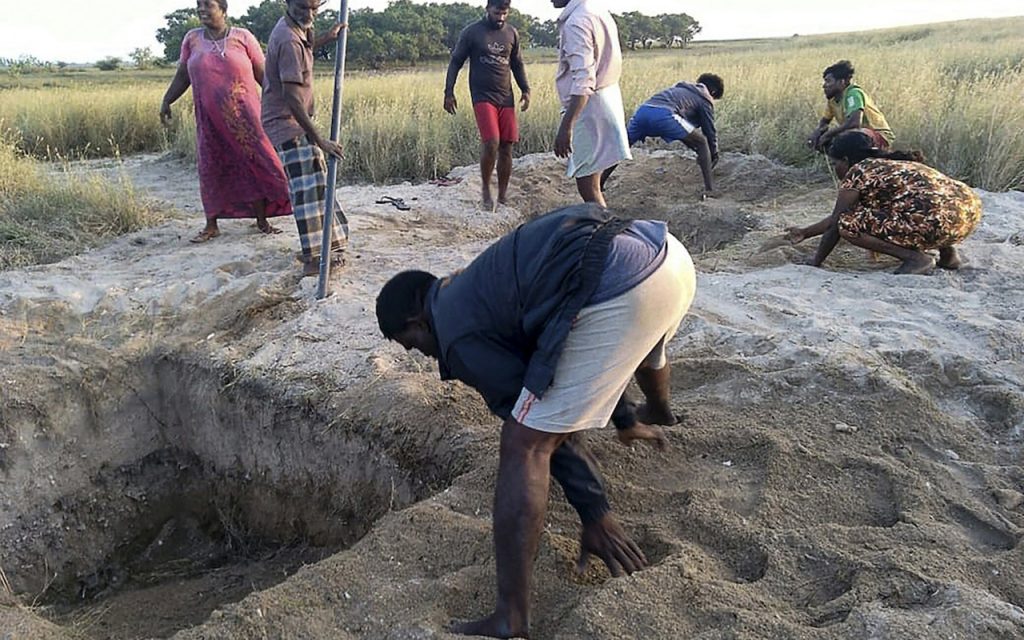
Sri Lanka has chosen a remote island to bury COVID-19 victims from the minority Muslim and Christian communities, after an outcry to an earlier rule mandating they be cremated.
The island of Iranathivu in the Gulf of Mannar lies about 300 km from the capital, Colombo, and was chosen by the government because it is thinly populated, reported the BBC. Those living on the island are Tamils.
Up until recently, the government had forced religious minorities to cremate their dead in line with the practice of majority Buddhists in the country.
Several Muslim groups were angered by the ban, saying there was no scientific basis to the claim that the burial of COVID-19 victims can contaminated ground water. Muslims make up nearly 10 percent of the population.
Several human rights groups, including Amnesty International, and the United Nations had also raised objections. The UN High Commissioner for Human Rights said that the policy on cremations failed to respect the religious feelings of the victims and their family members, especially Muslims, Catholics and some Buddhists, according to the BBC report.
The World Health Organization has provided guidelines on how the bodies of those who have died from COVID should be handled safely. It pointed out that there is no scientific evidence to suggest cremation should be used to prevent infection.
The decision to lift the burial ban followed a visit by Pakistan’s Prime Minister Imran Khan. The BBC reported that Sri Lanka sought Pakistan’s support at a United National Human Rights Council session, which is expected to consider a new resolution on mounting rights concerns in the country.
Some Muslim and Christian leaders, however, expressed indignation over the decision.
“This is a ridiculous and insensitive decision,” Hilmy Ahamed, vice-president of the Muslim Council of Sri Lanka, told the BBC.
“This is an absolute racist agenda. The saddest part is it’s almost pitting Muslims against the Tamils living in those areas,” he said.
Father Madutheen Pathinather, a priest living on the island, also told the BBC that the community was “deeply pained” by the decision.
“We strongly oppose the move. This will cause harm to the local community,” said the priest.
Father Pathinather said the island’s population of about 250 Tamils, who were displaced due to the country’s civil war in the early 1990s, only returned in 2018.
Sri Lanka’s Muslim and Christian communities also said that they have to travel far from their homes to bury their dead.
More than 450 people have died with COVID-19 in Sri Lanka so far and about 300 are from minority communities.
Source: Licas Philippines
0 Comments